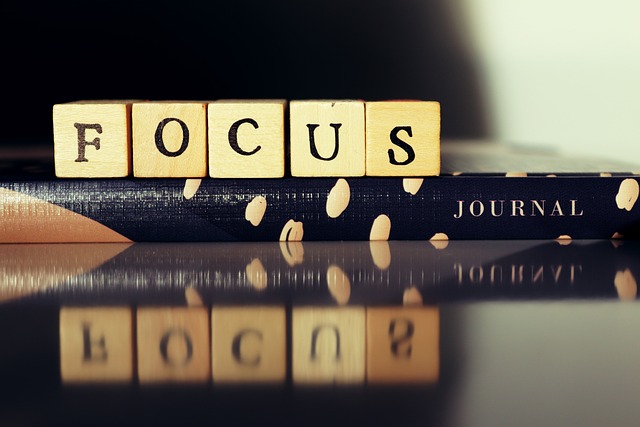Journaling has become a popular practice for many seeking a path to self-improvement and personal growth. The act of putting pen to paper or fingers to keyboard transforms thoughts and emotions into tangible words. This process not only clarifies thoughts but also helps in tracking development over time. One of the most significant benefits of journaling lies in its ability to serve as a reflective mirror, allowing individuals to gain insights into their feelings, behaviors, and progress. For those interested in self-improvement, journaling provides a structured yet flexible way to explore one’s journey profoundly.
To embark on this enlightening journey, it’s essential to understand how journaling, specifically, supports personal development. When you begin journaling, you create a safe space to express your emotions, thoughts, and experiences. You may ask yourself, why is this reflection important? By regularly documenting your feelings, you can identify patterns in your behavior. For instance, if you notice that you often write about feeling anxious after social interactions, you can delve deeper into those entries. Such reflection leads to self-discovery, unlocking insights that reveal underlying fears or triggers. This process is an essential part of tracking development as it allows you to measure both emotional and psychological growth over time.
Moreover, journaling encourages a habit of introspection. When you take the time to write daily or weekly, you invite a calm moment into your busy life. This stillness can foster creativity and critical thinking, providing clarity on various life aspects, including goals and aspirations. You will find that the act of writing itself can sometimes lead to new ideas or solutions to problems you’ve been grappling with. This creative aspect of journaling often propels you toward self-improvement by opening your mind to new possibilities and helping you track your evolving thoughts. The transition from overwhelming feelings to organized thoughts makes journaling a powerful tool for self-awareness.
Another crucial aspect is goal setting within the journaling practice. Personal development hinges on setting achievable goals. Consequently, journaling provides a structured way to document not only your goals but also the steps you plan to take to achieve them. By articulating your intentions on paper, you establish a level of accountability for your personal growth. Each time you revisit your journal, you can evaluate your progress. Have you taken steps toward your goals? If not, what barriers did you encounter? Such evaluations help you adjust your approach, ensuring that you stay aligned with your self-improvement journey.
In addition to setting goals, journaling aids in tracking emotional changes that coincide with personal development efforts. Emotions fluctuate, and documenting these changes can be incredibly revealing. For example, if you’re working on self-improvement, you might track periods of heightened stress and correlate them with specific events or practices in your life. Perhaps you notice that after a week of diligent journaling and mindfulness practices, your anxiety levels diminish significantly. This relationship becomes apparent more easily through regular entry. The act of journaling bolsters monitoring your emotional landscape, allowing you to see the gradual transformations that occur as you actively engage in self-improvement.
If you’re pondering how to effectively incorporate journaling into your self-improvement routine, consider different journaling methods. The traditional reflective journaling style is popular, where you write freely about your thoughts and feelings. This approach offers great flexibility. Alternatively, you might use bullet journaling, which combines to-do lists with reflective entries. Bullet journaling can keep you organized while simultaneously tracking your personal development journey. Each individual has different preferences, so experimenting with styles can be instrumental in finding what resonates with you best.
Let’s also address the role of prompts within your journaling practice. Sometimes staring at a blank page can feel daunting. In such cases, prompts can reignite your spark for reflection. For instance, questions like, “What did I learn about myself this week?” or “What challenges did I overcome?” can guide your thoughts. These prompts can help you show gratitude for the progress you’ve made and the hard work that lies ahead. By reflecting on your responses over weeks or months, you can track patterns and identify areas that need improvement. They empower you to dig deeper, further supporting your self-development journey.
Another interesting aspect is how technology impacts journaling today. Digital journals have gained popularity, thanks to apps and online platforms designed to make journaling accessible and efficient. With features like reminders and prompts, these digital options encourage consistency. Additionally, they often provide analytics that track your writing habits, helping you see patterns over time. This technological edge can complement your journaling efforts by ensuring you maintain a regular practice while also tracking data that can guide your self-improvement journey.
Moreover, consider how social media influences personal development and journaling. Platforms designed for self-reflection can create communities around the practice. Sharing your thoughts or engaging with others can offer support and motivation. Social media can become a valuable tool to hold yourself accountable, especially when you participate in challenges or share your journaling experiences. However, it is essential to maintain balance and ensure that your journaling remains a personal, internal process despite the potential of social media for external validation.
Finally, let’s not forget the vital connection between journaling and mindfulness. Mindfulness encourages being present, and journaling can serve as a powerful tool to enhance this practice. Focusing your pen on paper promotes a meditative state, allowing you to cultivate awareness of your thoughts and feelings. Through journaling, you can practice gratitude, record daily affirmations, and celebrate small victories, all of which contribute to mindfulness. Incorporating mindfulness into your journaling practice allows you to capture the moment, track your emotional responses, and ultimately fosters greater self-improvement. This holistic approach enhances the effectiveness of your reflections by keeping you grounded and aware.
FAQs about Journaling and Personal Development
- 1. How often should I journal for personal development?
- It’s beneficial to journal regularly, whether that’s daily or several times a week. Consistency helps you track your development accurately. However, find a rhythm that feels comfortable and sustainable for you.
- 2. What should I write about in my journal?
- Write about your feelings, experiences, goals, and anything that resonates with you. Use prompts to help guide your writing if you’re unsure where to start. The more honest you are, the more beneficial your journaling will be.
- 3. Can I use a digital platform instead of a traditional journal?
- Absolutely! Using a digital platform may help you journal more consistently. Apps can offer reminders, and you can write wherever you are. Choose whatever format works best for your lifestyle.
- 4. How do I track my progress in personal development through journaling?
- By reviewing your past entries regularly, you can see how your thoughts and feelings have evolved. Look for patterns and shifts in your emotional state and assess whether you’ve achieved your goals.
- 5. Is it okay to share my journal with others?
- While journaling is often a personal experience, sharing can foster accountability and support, especially within communities focused on self-improvement. Ensure you’re comfortable with this level of vulnerability before you share.



